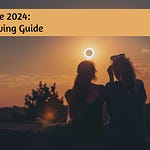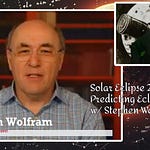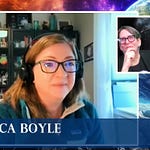In this week's episode of Astronomy News with The Cosmic Companion, we take a look at aurora seen around a star for the first time, a new super-Earth is discovered just 100 light years from Earth, and Penn State researchers search for alien civilizations that may have already found life on our own world.
Video version of this podcast:
Aurora on Earth are best known on as northern and southern lights, but they can also occur between a pair of planetary bodies, such as Jupiter and its innermost large moon, Io. Now, for the first time, astronomers have detected aurora taking place between a star and planet. The star, known as GJ 1151, is closely orbited by an earth-sized world. Interactions between that planet and the star create changes in the magnetic field of GJ 1151, producing an aurora. The system sits just 27 light years from Earth.
The discovery of an exoplanet in a star system less than 100 light years from our home planet has now been confirmed by astronomers using the Habitable-zone Planet Finder in Texas. This super-Earth, dubbed G 9-40b, is roughly twice as large as our home planet, and significantly more massive. The world orbits close to its cool red parent star, orbiting that body once every six days. First found by the Kepler spacecraft as the planet passed in front of its star as seen from Earth, this is the second-closest planet yet found using this technique.
A new search for alien civilizations is looking at planets which may be able to find life on our own world. As planets orbit their sun, some of these exoplanets can be seen passing in front of their parent star as seen from Earth. Astronomers are able to deduce significant information about such exoplanets, including evidence of life. A new study from the Breakthrough Initiative is searching worlds that would see the Earth pass in front of the Sun as seen from the perspective of an extraterrestrial. After examining 20 such worlds, no radio signals were detected, but the search is only beginning in the hunt for extraterrestrial civilizations.
On Tuesday, March 3rd, I will interview Sofia Sheikh of Penn State University, lead researcher on this study. A preview of the interview will be available on the video version of Astronomy News with The Cosmic Companion that week, and the full interview will be available on the podcast version of this show, available wherever you get your podcasts.
Did you like this episode? Subscribe to The Cosmic Companion Newsletter! Astronomy News with The Cosmic Companion is also available as a podcast from all major podcast providers. Or, add this show to your flash briefings on Amazon Alexa.
See you around the Cosmos!
- James






















Astronomy News with The Cosmic Companion Podcast February 25, 2020